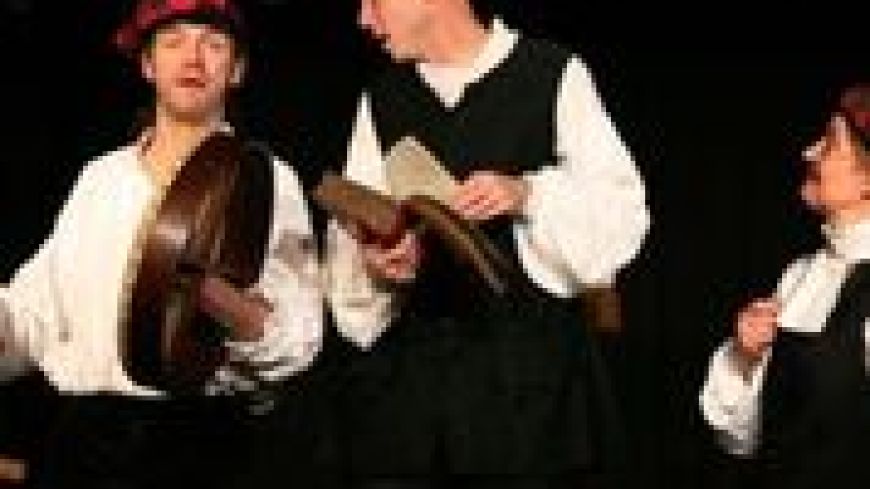
In 1746, when Samuel Johnson set out on creating the compilation of what was to be his renowned Dictionary of the English Language, he knew it wasn’t a one man job. He recruited a team of six assistants to help in his colossal task, five of whom were Scots. At that time, the Scottish education system was broad based and enlightened so no real surprise in his choice of recruits. No surprise that is unless Johnson’s ill feeling towards his neighbours is known. His low opinion of Scotland and its inhabitants is summed up in his dictionary definition of the word oats: 'a grain, which in England is generally given to horses, but in Scotland supports the people'.
This latest play from James Runcie uses music, cross dressing, humour and pathos to look at Johnson’s life and the role these men played in the 9 year job of creating definition and clarity for the use of the English language.
Under a glow of candlelight and with the smell of orange zest permeating the theatre, the play takes the form of a several shifting scenes and characters in a set and costumes with a distinctly 18th century atmosphere. It looks philosophically at Johnson’s private life alongside his single-minded dedication asks what matters more: achieved ambition or domestic bliss.
Robust language of the time explodes at the start with several exercises in linguistic gymnastics being performed across the piece that sounds as though a Scots dictionary or thesaurus has been swallowed by the writer, with banjaxed making an incongruous appearance among the auld Scots.
Gerda Stevenson’s beautiful clear voice caresses both prose and song as she easily switches gender from the cocky Mr Shiels to the ailing, cordial drinking Mrs Johnson. Alasdair MacRae brings his usual swagger to the stage as the redoubtable Mr Stewart and the rough as dugs barmaid in spite of an injured arm making him unable to play any of his instruments, a task that John Keilty (Mr Maitland) stepped up well to perform at the last minute.
In this look at some of the methods behind Samuel Johnson’s major work to give clarity in the use of the English language we see how a dominant culture can swamp its neighbour despite the clear evidence of the richness and diversity of the perceived subservient one. While the play comically points these tensions up and the characters are well captured across the board by the five strong cast who can switch accent and costume with ease in this entertaining piece, the question is why now? Who really knows the truth, but only 40 odd years since the creation of Union, the chances are that the educated Scots who helped Johnson were, rightly or wrongly, glad to make the most of their new Britishness and not be tartan toorie wearing bevvie merchants. Which begs the question as to what this play is really about.
Tue 27 – Sat 31 Oct, 1pm / Fri 30 Oct, 1pm & 7pm

